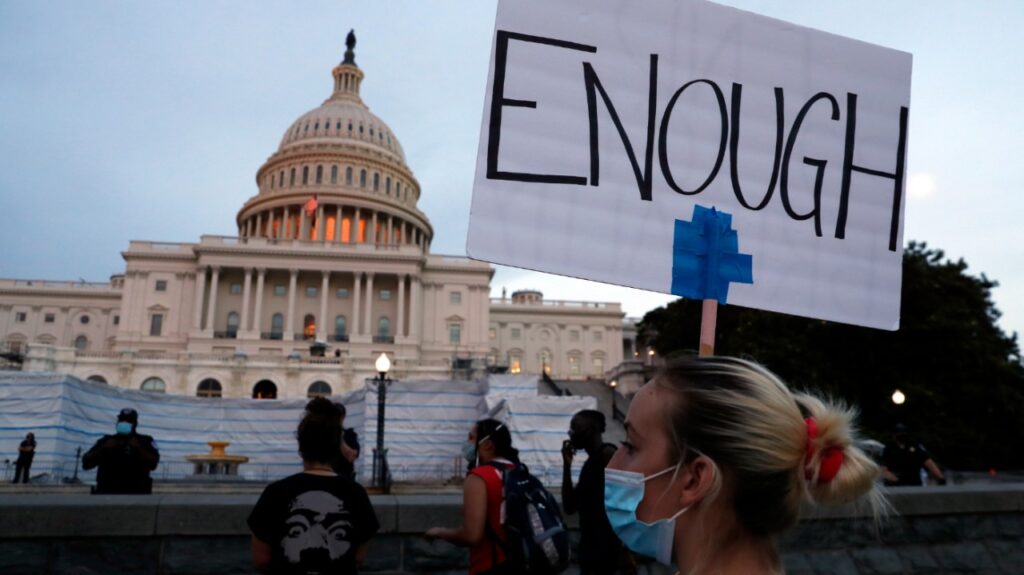The 118th Congress was one of the least effective in American history. Only 27 laws were passed last year, the lowest annual number in decades.
To put this into context, 2023 was part of a 12-year downward spiral in productivity in Washington. Since 2011, Congress has had the least productive first five of her six years in history. And the American Congress is likely to be just as inefficient in 2024.
Earlier this month, Congress again relied on a continuing resolution to avoid a government shutdown, rather than pass a budget agreement that would set U.S. spending on October 1, when it actually began months earlier. This practice has become all too common. In American politics, government shutdowns are always on the horizon, and party politics trumps actual policy-making.
The recent immigration debacle is evidence of the latter. At a time when Americans are deeply concerned about the immigration crisis, a bipartisan group of senators has been working to negotiate a border security bill that would be the strongest immigration legislation in decades. was. Even though lawmakers from both parties, including the nation's most conservative senators, supported the bill, Republicans ultimately killed it as they use the issue as a political weapon against Democrats in next year's elections. did.
This lack of partisanship and gridlock is negatively impacting public opinion of government, according to a new national survey conducted by Shane Cooperman Research in partnership with the George Washington University School of Political Science, the National Government Communications Association, and Ragan Communications. It became clear that The survey found that most Americans do not have confidence in their government to function effectively or communicate honestly.
There is widespread pessimism about the government among Americans. A majority of U.S. adults do not trust the government to do what is best for the country (60%), believe the government is incompetent (63%), and believe that the government primarily serves the public interest. (78%)
Opinion polls show that this widespread distrust has led to people distrusting information from the government as well. About two-thirds of U.S. adults believe that the government is powerless in public communications (62%) and that they do not trust government messages “very much” or “not at all” (69%). , the main reason for this is that the government is seen as having a self-interest. .
Public trust in government is likely to continue to erode without broader political changes and more concerted efforts by governments, especially communication professionals working in government agencies and organizations, to repair relationships with the public. is very high.
To understand how this is accomplished, our survey, in addition to questioning U.S. adults, also surveyed government agencies and communication professionals who work in government agencies, as well as those employed by government-adjacent private companies. We also evaluated the attitude of the communication professionals who were being interviewed.
The survey revealed a major discrepancy in the way Americans think. actually Comparing government messaging and how communications professionals work in government do it think The public recognizes that.
A majority of communication professionals working in government believe that the government is effective in communicating with the public (58%) and that the public trusts information from the government (51%) . This is in stark contrast to the strong pessimism expressed by American adults surveyed.
There are also discrepancies between the public and these experts' perceptions. why Citizens may not trust government messages. Communication experts point to broader social forces and problems with communication itself, citing “polarization,” “misinformation,” and “poor communication styles” as key reasons, but the U.S. The public has a far more sinister view of the government, which they see as: dishonest” and has “selfish interests.”
In other words, the experts responsible for communicating information to the public are misdiagnosing the problem at hand, which makes it even more difficult to solve. That said, when asked how the government could improve its messaging, both American adults and communications experts agree that increasing “transparency” is most important. Experts will also identify internal modifications that can be implemented to achieve this broader goal, such as “timeliness” and “simplification” of messaging.
But before these experts adopt the only “internal fix” that everyone has in mind: artificial intelligence for public communication, public opinion must be considered.6 in 10 American adults believe what the government tells them should not Only 2 in 10 people think they would use AI due to privacy risks should Research shows that using this tool increases efficiency.

In addition to modifying the way government and the public communicate to restore public trust in our institutions, elected officials on both sides of the aisle need to do more to stop this never-ending cycle of tit-for-tat politics. have to do the work. No real progress is achieved.
If our leaders fail to do this, public distrust in the government will worsen and may fall to crisis levels in the near future.
Carly Cooperman and Douglas E. Schon are pollsters and partners at the New York-based polling firm Shane Cooperman Research. They are co-authors of the book America: Unite or Die.
Copyright 2024 Nexstar Media Inc. All rights reserved. This material may not be published, broadcast, rewritten, or redistributed.


